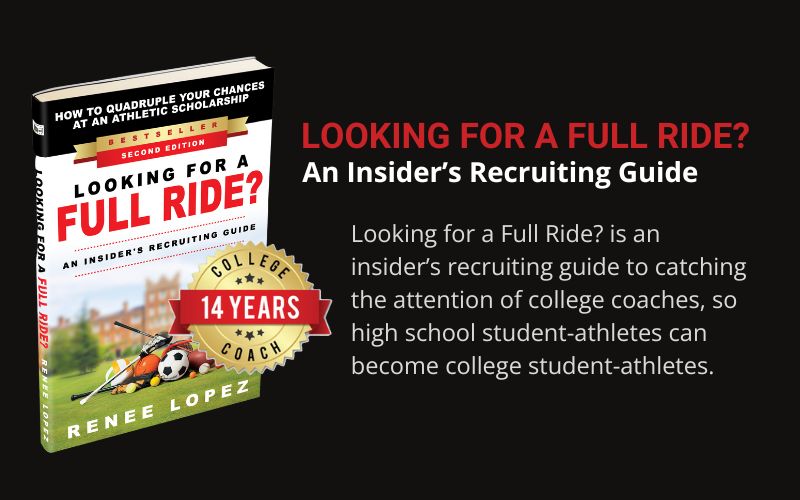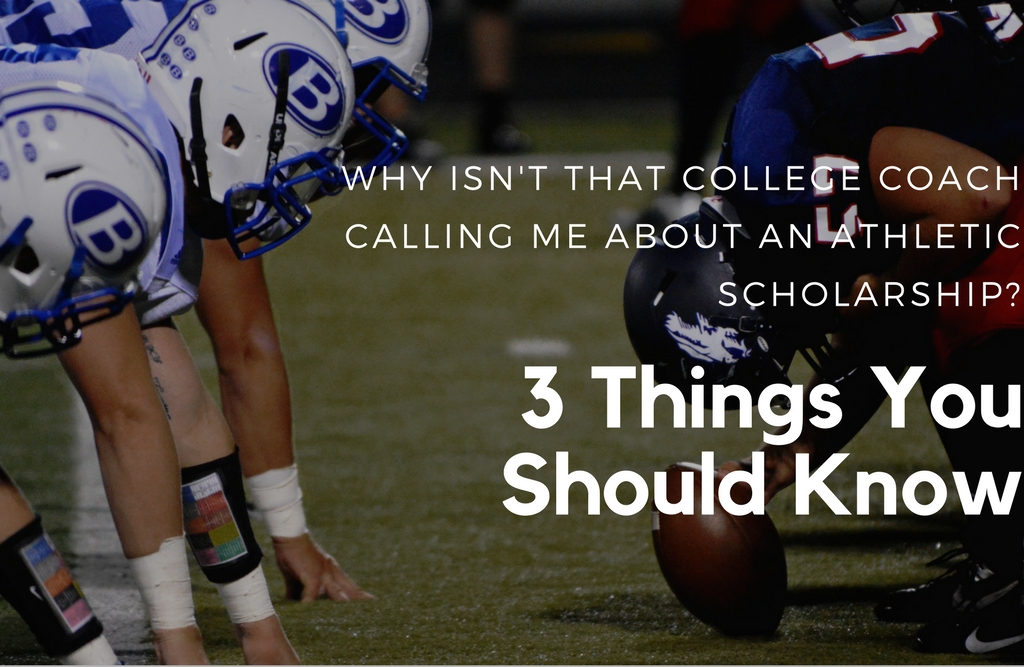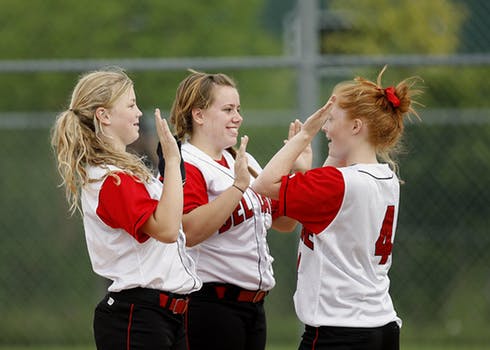3 Questions to Ask Yourself
If you are a talented high school athlete, you are likely hoping for an opportunity to continue playing your sport in college and also receive athletic scholarship dollars for your time invested. Having been a college coach for 14 years across all levels from NCAA Division I, II, III, to NAIA, I have found so many misconceptions among athletes and their parents regarding how the recruiting process actually works.
Let’s say you want to play in college and are one of the top 3 athletes on your high school or club travel team. All things the same in terms of athletic ability, there are numerous other factors of why a coach would contact another potential recruit over you. It’s important to put yourself in the college coach’s shoes (or should we say ‘cleats’?) to understand where they are coming from…
Here are 3 main questions of why they might not have contacted you:
1) Have you let them know of your interest in the school in a professional way?
Every day college coaches are flooded with emails from prospective students who want to be a part of their future teams. Although some colleges use recommendations from some high school and club coaches, most coaches investigate those athletes who send them videolinks and a player resume in a professional email. For helpful tips on what to include in that initial contact, visit our SPECIAL REPORT: Strategies To Emailing A College Coach. You would think this goes without saying, but proper grammar and punctuation is extremely important in all contact with the school as well. I can’t tell you the number of emails over the years I received with texting and slang abbreviations, run-on sentences, and improper punctuation. Invest time in writing these emails as you want the first impression of you as a potential recruit to be a good one! I know it is tempting parents to want to write this email for them. However, after interviewing 65 college coaches and athletic directors for my book, Looking For A FULL RIDE?: An Insider’s Recruiting Guide, every single coach said that the initial email should come from the student, NOT THE PARENT!
In your emails, you also need to differentiate yourself by demonstrating you have researched the school website and by sending a personalized email to the coach early in your high school years. You do not want to send generic emails to every school you are interested in. Address the email saying “Dear Coach _________(last name)”. Do not assume it is proper to call them by their first name, unless they tell you specifically that it is allowed. You should also include your GPA, class rank, current ACT/SAT test scores (or scheduled date if you haven’t taken them yet), references, and your upcoming game schedule. In addition, if the college athletic website has a recruiting questionnaire, I would highly recommend filling that out as well to show you are being proactive.
2) What reasons have you given a coach to not want to contact you?
I often have club coaches contact me who send me a video of a talented athlete and they just can’t figure out why this student hasn’t been getting contacted by college coaches. To be honest, many coaches will often delete an email if it is from a parent and/or a prospective student asks for scholarship immediately in their first communication to the coach.
If it doesn’t come down to email mistakes, it usually is their behavior on and off the field. It has been well-documented of recruits losing scholarship opportunities due to the things they have said on their social media. Many also lose options due to acting improperly on a campus visit. This can also include how the student-athlete speak to their teammates, coaches, and officials in the midst of a competition I have developed a FREE SPECIAL REPORT: Leadership Characteristics College Coaches Look For In A Recruit. It’s a great document for families to read together.
Parents, remember that your behavior on the sidelines can also determine your child’s future. Numerous coaches in our interviews agreed: They would stop recruiting an athlete if the parent seemed overbearing in the process, or obnoxious on the sidelines. No matter how talented your child is, they don’t want an obnoxious parent wearing their school colors as it would be a poor representation for the program.
3) Where are you in the recruiting timeline?
It is important to know the recruiting timelines for your sport and the institutions you are investigating. The NCAA, NAIA, NCCAA, and NJCAA have various rules depending on the sport and the graduation year. The NCAA has dead periods, which is a time a coach cannot contact potential recruits during specific times of the year. In addition, your graduation year also dictates when NCAA coaches cannot contact you and the types of contact they can have with the recruit. Early in the high school years, they often can only send a camp invite and a recruiting questionnaire to an athlete. The NAIA, NCCAA, and NJCAA have less stringent rules, but it important to understand the differences as a coach may want to contact a recruit, but their governing body may not allow for it at a specific age.
Finally, you should know if the coaches you are contacting are currently in their championship season, their non-championship season, or in between seasons. For example, fall sports such as football, volleyball, and soccer have their championship season from August through late November/early December (minus bowl games). They would then have a shorter training season during the spring months which is called their non-championship season. If a coach is in either of these 2 seasons, they are typically working 12-16 hour days and are really focused on the team that is sitting in front of them and therefore, recruiting takes a back seat. Many of the coaches we interviewed for Looking For A FULL RIDE?: An Insider’s Recruiting Guide admitted sometimes they just don’t have time to contact a recruit even though they are interested in them.
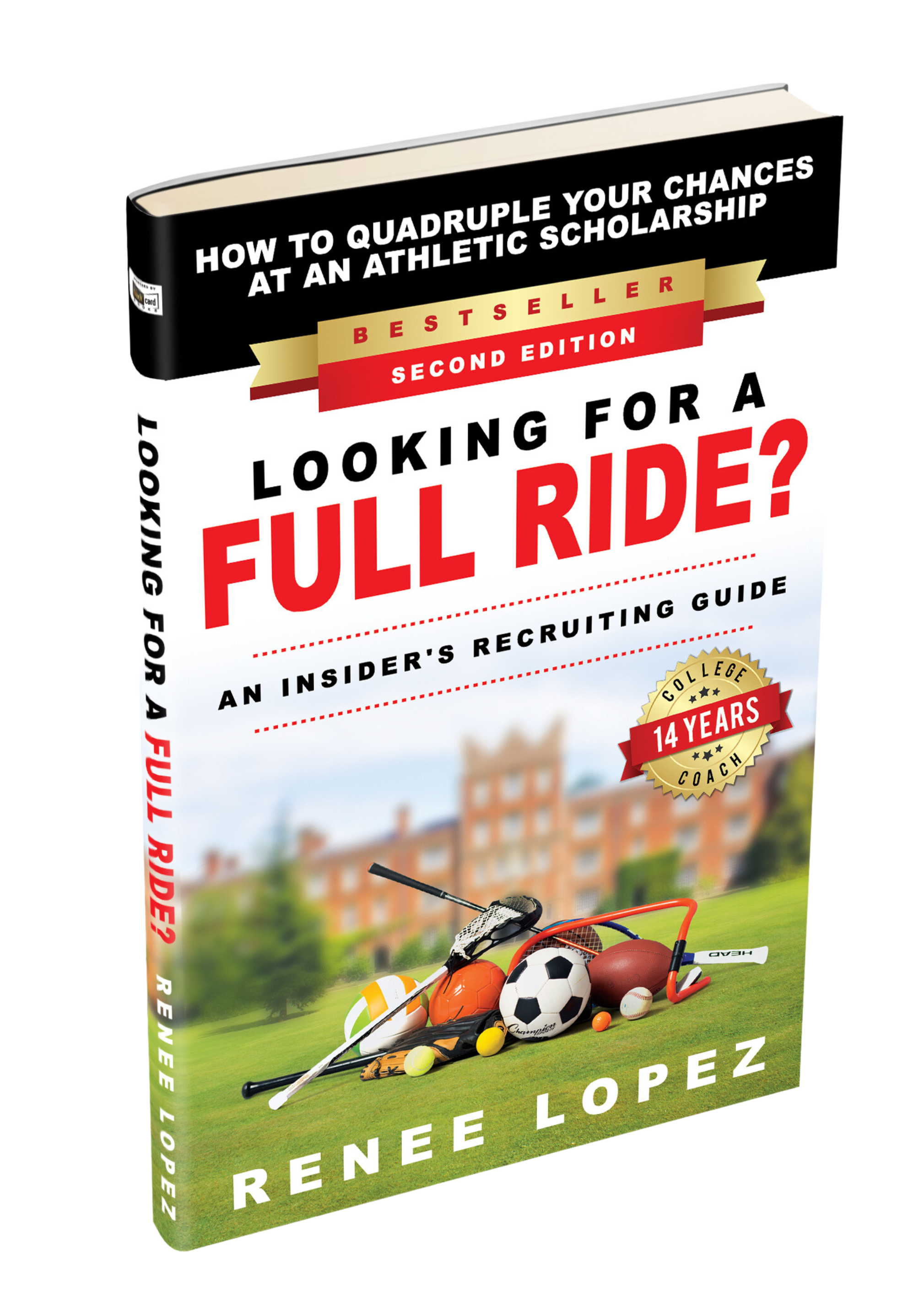 So if you haven’t heard from a coach for a few days, it may be that they are just swamped. There were times I would rack up one hundred emails that I just couldn’t reply to as we had away games, training, scouting an opponent, watching film, and keeping tabs on our current athlete’s academics. Most coaches use the summer months and the times between these two seasons to focus on recruiting.
So if you haven’t heard from a coach for a few days, it may be that they are just swamped. There were times I would rack up one hundred emails that I just couldn’t reply to as we had away games, training, scouting an opponent, watching film, and keeping tabs on our current athlete’s academics. Most coaches use the summer months and the times between these two seasons to focus on recruiting.
While there are a variety reasons a college coach makes a decision on one recruit over another. Sometimes it comes down to the positional needs for the team or the coach doesn’t believe that a specific athlete has the ability to make an impact in their program. However, it is very important that you control the variables you can as a potential recruit. Make sure that you market yourself properly and that you do not provide a coach a reason to cross you off their recruiting list!
Would you like help with the college recruiting process?
1. Go to www.lookingforafullride.com to get your FREE Report: Strategies to Emailing A College Coach.
2. Want some help with the recruiting process? Join some of our 9 Facebook Groups:
- Parents of High School Student Athletes Walking Through The Process (All Sports)
- Beyond Xs & Os 4 HS Athletes: Health, Recruiting, Team Building, Mental Training (All Sports)
- Athletic Recruiting Education for Principals, AD's, and Counselors (All Sports)
- Club/HS Coaches Learning College Recruiting Process (All Sports)
- Play College Soccer (Soccer Specifically)
- College Recruiting for GK's (Soccer Specifically)
- Mindset & Leadership Lessons for Athletes, Coaches/Teachers, & Business Leaders (All Sports & Business Leaders)
- Positive Team Building for Pro, College, HS & Youth Coaches (All Sports)
- Christian Competitors (Coaches & Athletes Serving Christ @Field/Court/Gym) (Sports Ministry for All)
3. Would you like her to do individual consulting with your family to get an insider’s perspective?
Email info@lookingforafullride.com for more details.
4. Did you know Coach Renee Lopez can come to your school or sports organization?
Email info@lookingforafullride.com for more details.
Coach Renee Lopez
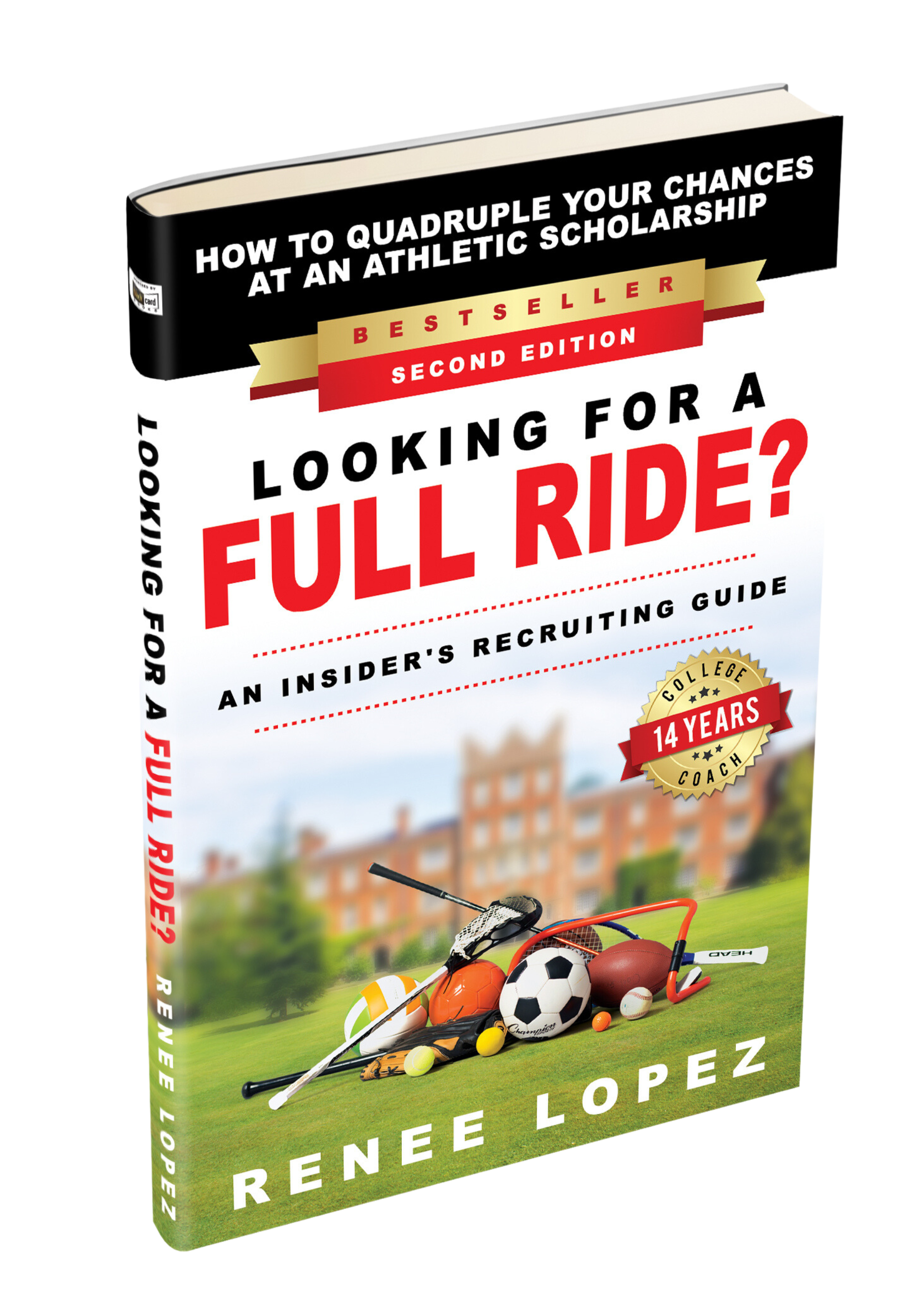
As a 17 year coaching veteran, Renee Lopez is a recruiting expert for high school student athletes. She uses her NCAA Division I, II, and NAIA Head Coaching experience to help families navigate the recruiting process to be identified by college coaches and help them find the right “fit” for playing at the next level.
She presents recruiting seminars across the country, has recently been featured on ESPN Radio, and is the author of the book, “Looking For A FULL RIDE?: An Insider’s Recruiting Guide” where she interviewed 65 college recruiters across all sports and college levels.
She also does private consulting for student-athletes and their families to help in understanding the often daunting process of recruiting. (See one family’s testimonial.) If you are looking for help in the college recruiting process, please email Coach Renee Lopez at info@lookingforafullride.com.
